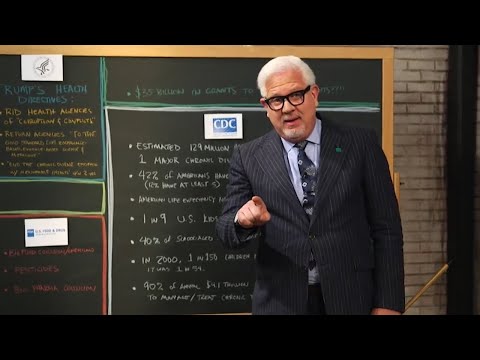**RFK Jr. Nominated for Secretary of Health: A Call for Change in American Health Care**
In a move that has piqued the interest of many, President-elect Donald Trump recently nominated Robert F. Kennedy Jr. to lead the Department of Health and Human Services. The COVID-19 pandemic has made many Americans question the scientific institutions that are supposed to keep them healthy. It appears that Americans are tired of being fed misleading information, particularly when it comes to their health. Trump’s nomination of RFK Jr. signals a desire for significant changes within the health care system, emphasizing the need for a more honest approach to public health.
RFK Jr. faces a hefty task, as he is armed with three direct mandates from Trump. He is expected to rid health agencies of corruption and conflicts of interest, work toward restoring evidence-based practices in medicine, and tackle the chronic disease epidemic burrowing deeper into American lives. With 129 million Americans grappling with at least one major chronic disease, it is evident that change is overdue. Americans are increasingly concerned about their well-being, with alarming statistics showing declining life expectancy and rising rates of childhood health issues such as ADHD and autism.
One of the significant hurdles that RFK Jr. will have to tackle is the influence of Diversity, Equity, and Inclusion (DEI) positions within health agencies. Many believe that these roles have strayed too far from the core mission of promoting health. They argue that instead of prioritizing genuine science, these agencies have become more about political correctness. Draining the swamp of DEI roles won’t be a walk in the park, as they have become deeply entrenched over the past few years. Still, many voters hope that a strong, focused approach will restore credibility to institutions that have long since lost the trust of the public.
Another pressing matter is the evident collaboration between health agencies and the industries they oversee. Critics point out that pharmaceutical companies often have too much influence over the regulations governing their products. The FDA’s reliance on manufacturers to “prove” the safety of chemicals in food is seen as an unsettling example of this relationship. Americans deserve to know what is in their food and medicine without the influence of profit-driven agendas. Reform in this area is critical and long overdue.
Lastly, Kennedy’s aspirations to shift the focus toward preventative health care resonate strongly with those who believe that staying healthy should be prioritized over merely treating diseases. He proposes that half of the research budget for the National Institutes of Health be allocated to preventative and holistic health approaches. This forward-thinking plan could change the landscape of American health care, redirecting efforts from a reactive model to a proactive one where the emphasis lies in preventing ailments before they become chronic.
While skeptics may question Kennedy’s lack of formal public health credentials, he has displayed a lifetime commitment to battling institutional rot and corruption. Perhaps this outsider perspective paired with a passion for public health is precisely what America needs. As the focus shifts to health care reform under his leadership, many Americans hope that transparency, honesty, and genuine care will take precedence over political posturing and profit-driven motives. In the realm of health, it’s time for Americans to demand the truth—no more masks, no more fluff, just facts.



